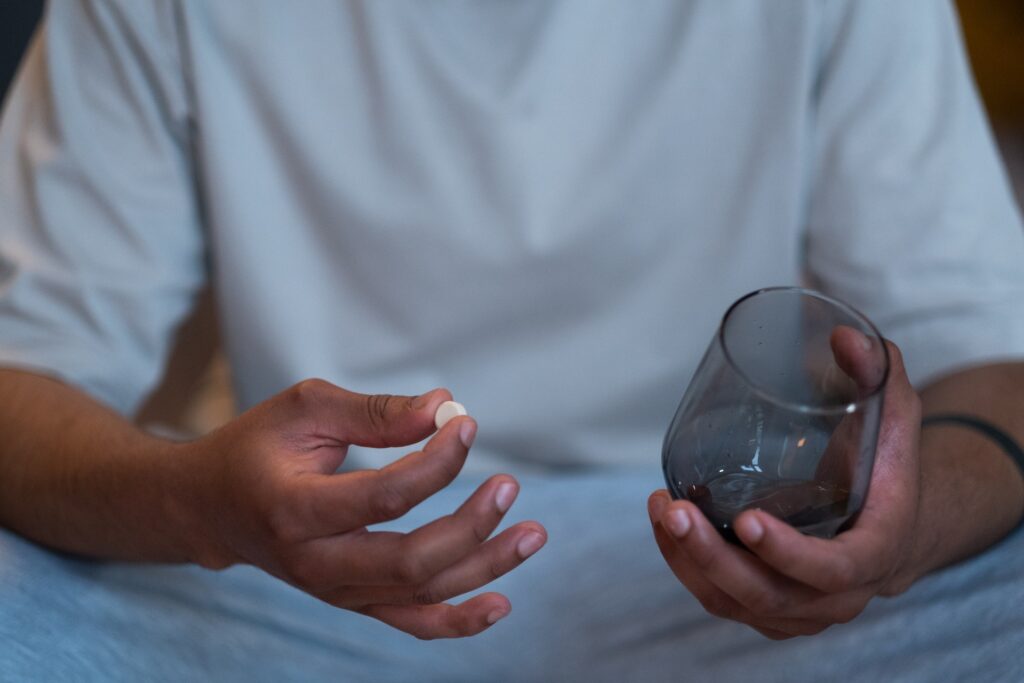
Are you concerned with bleeding gums and vitamin deficiency? You may be wondering if you’re suffering from bleeding gums. Bleeding gums are often caused by an inadequate amount of vitamin C in your diet. Luckily, increasing your intake of this vitamin can help reverse bleeding gums and other oral health problems.
Here are some foods rich in vitamin C. Read on to learn how to increase your intake. You might even be surprised to discover that your bleeding gums are the cause of a vitamin deficiency.
Can vitamin deficiency cause bleeding gums
There are many causes of bleeding gums, including health conditions involving the microvascular system and the heart, kidneys, and brain. However, one simple treatment is addressing vitamin C deficiency.
Your recommended daily allowance depends on age and gender, so be sure to follow the directions carefully. A good rule of thumb is to take at least 100 milligrams of vitamin C per day. You may also want to supplement with additional vitamins.
A study published in Nutrition Reviews examined the results of 15 clinical trials, which included over 1,100 participants. The researchers also analyzed data from over 8,000 people living in the United States.
They concluded that low vitamin C levels were linked to bleeding, and that increasing vitamin C intake could reverse the condition. Vitamin C is a key component of oral health and should be taken in sufficient amounts every day. However, there is a risk of toxicity in excess amounts.
Reverse gingivitis with adequate amounts of vitamin C
While you’re able to reverse gingivitis symptoms by consuming adequate amounts of vitamin C, a vitamin deficiency can still result in bleeding gums. In addition to proper brushing and flossing, a deficiency in vitamin D could cause bleeding gums and gum disease.
A blood test is essential to determine the exact amount of vitamin C you need. In addition to vitamin C, you might also benefit from vitamins A, E, and K.
A primary care provider can help determine the cause of your bleeding gums by examining your teeth and performing blood tests. Treatment for this condition will depend on the condition.
Your dental care provider can prescribe a vitamin supplement if your diet lacks these important vitamins. Your oral health is important – visit your family dental office today to get the essential dental care you need.
If your gums are red, white, or purple, you may have a vitamin deficiency. If this is the case, it is essential to address the cause of your bleeding gums. Some people are sensitive to certain vitamins or minerals.
In addition to your regular diet, you should also incorporate a vitamin supplement to your diet if you experience frequent bleeding. There are many supplements available that provide the same effect as a natural supplement, and some can even interact with your prescription medication.
Bleeding gums and vitamin D deficiency
There are several symptoms that indicate a vitamin D deficiency, such as bleeding gums. Low levels of vitamin D affect your gut health, immune system strength, and bone homeostasis.
Bleeding gums are often one of the first symptoms of a vitamin D deficiency, but they may also be a symptom of more serious issues. This condition can also affect your overall health, as the microbiome of your gut plays a vital role in oral health.

While you can obtain vitamin D from your diet, the majority of it comes from sunlight. Vitamin D is necessary for your body’s absorption of calcium, and without sufficient amounts, your body will store calcium in your bones and arteries.
Low levels of vitamin D can also lead to other problems, including osteoporosis and decreased bone mineral density. Fortunately, you can treat a vitamin D deficiency by focusing on your diet.
If your gums are swollen and bleeding, it could be a sign of a vitamin C deficiency. One thing to consider is that Vitamin C is essential for tissue growth, healing wounds, and strengthening bones and teeth. Also Vitamin C deficiency can lead to swollen, painful gums.
Studies have shown that Vitamin D can help prevent tooth loss
You should also visit a dentist regularly to check for signs of this problem. If you are already experiencing bleeding gums, don’t wait for the problem to get worse.
Dietary habits are another cause of gum disease. While it’s not easy to avoid the sun altogether, it’s important to get enough vitamin D to prevent bleeding gums. Vitamin D is essential for bone health and can help prevent tooth loss.
It is especially important for older adults, as their bones are similar to their teeth. In addition, vitamin D can improve your gum health and prevent the formation of periodontal disease.
Why Are My Gums Bleeding For No Reason?
There are many different reasons why your gums may be bleeding, from gum disease to hormonal changes. Fortunately, there is no reason to panic! Here are a few solutions that will help you get back to healthy gums. First, know what the cause is.
Do your gums bleed for no reason because of some type of dental disease? If you do, it is time to visit the dentist. Alternatively, you can try home remedies that can help you treat gum disease, including a warm salt water rinse and raw honey.
Bleeding gums are a warning sign that you have a gum disease. In the case of gum disease, your emergency dentist can perform a deep dental cleaning and scaling and root planing procedure to remove any infection from the gums.
You may also use an oral rinse to reduce inflammation. If your bleeding gums continue to occur, you should see a periodontist to receive further treatment. During these follow-up visits, the bleeding gums should stop. Vitamin C is a critical part of your diet.
This essential vitamin is vital for many connective tissues, including your gums. Vitamin C is easy to find and is in fresh fruits and vegetables. If you aren’t getting enough, you could also have scurvy, a condition that causes excessive bleeding. In this case, your best bet is to eat a diet rich in vitamin C, like leafy green vegetables.
If you liked the article, please donate!
